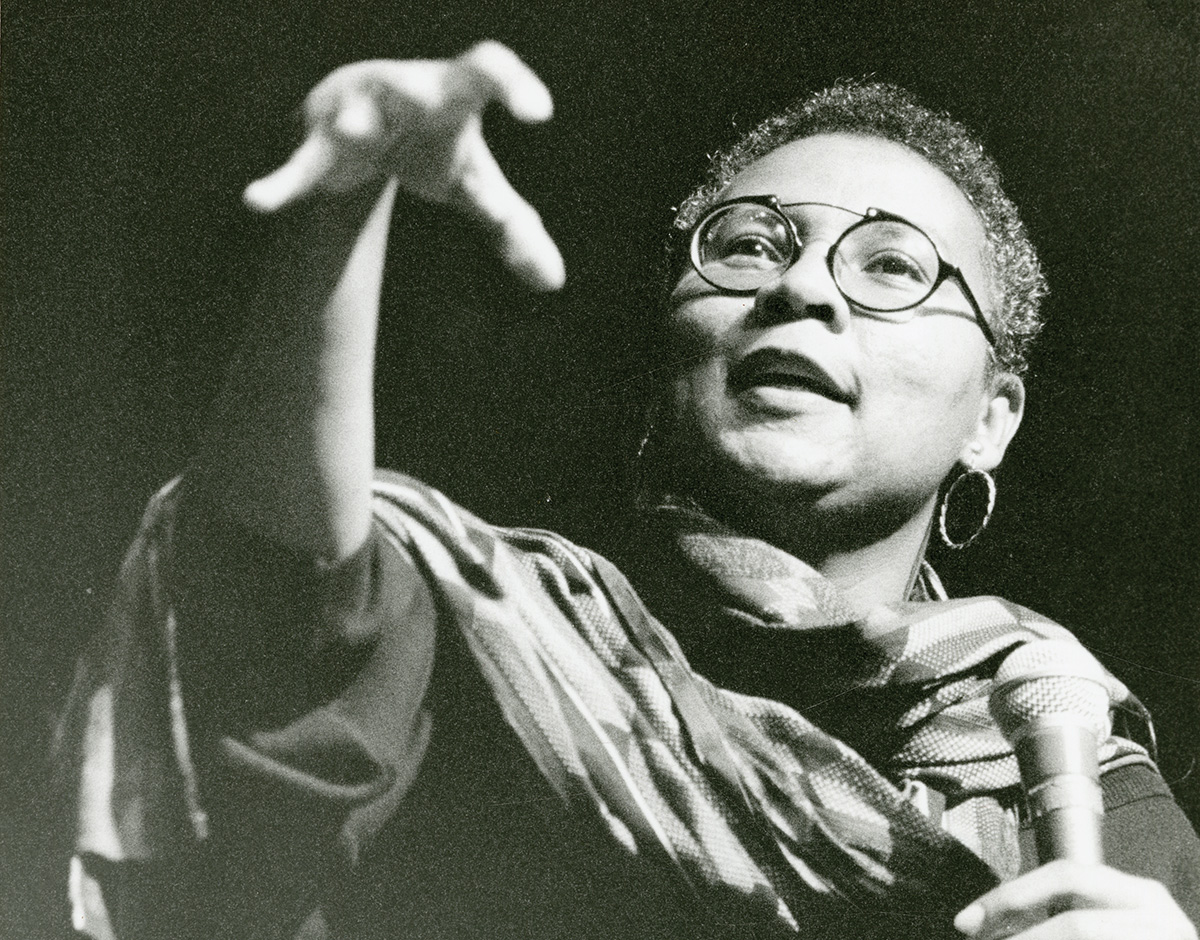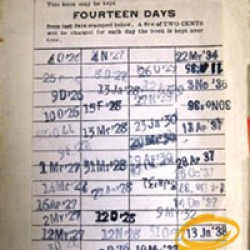A Dissenting Voice
Social critic bell hooks MA’76 positioned herself as a “dangerous woman.”

hooks wrestled with the issues of race, feminism, and love: “I am passionate about everything in my life — first and foremost, passionate about ideas.” UW Archives S17568
She rose at 4 or 5 a.m. each morning, prayed and meditated, and then tried to read a nonfiction book every day. This intellectual and author prepared like an athlete as she wrestled with the issues of race, feminism, and love.
bell hooks MA’76, a well-known social critic, wrote the first of her more than 30 books at age 19, and she was a provocateur ever after.
“I think of public intellectuals as very different, because I think that they’re airing their work for that public engagement,” she told the New York Times. “Really, in all the years of my writing that was not my intention. It was to produce theory that people could use.”
hooks — whose given name was Gloria Jean Watkins but who adopted the lowercase pseudonym from her great-grandmother — wrote that first book, Ain’t I a Woman: Black Women and Feminism, as an undergraduate at Stanford University before coming to UW–Madison for a master’s in English literature followed by a PhD at the University of California–Santa Cruz.
In that acclaimed work, hooks said that sisterhood must encompass growth and change. “The process begins with the individual woman’s acceptance that American women, without exception, are socialized to be racist, classist, and sexist, in varying degrees, and that labeling ourselves feminists does not change the fact that we must consciously work to rid ourselves of the legacy of negative socialization,” she wrote.
hooks said she worried about what she called censorship of the imagination: “When I look at my career as a thinker and a writer, what is so amazing is that I have a dissenting voice and that I was able to come into corporate publishing and bring that dissenting voice with me.”
She was known to criticize often-admired African American figures including Spike Lee and Beyoncé, and she wrote about the nature of love, bringing a fervor to her work.
“I am passionate about everything in my life — first and foremost, passionate about ideas,” she said. “And that’s a dangerous person to be in this society — not because I’m a woman, but because it’s such a fundamentally anti-intellectual, anti-critical-thinking society.”
Published in the Spring 2022 issue



Comments
No comments posted yet.